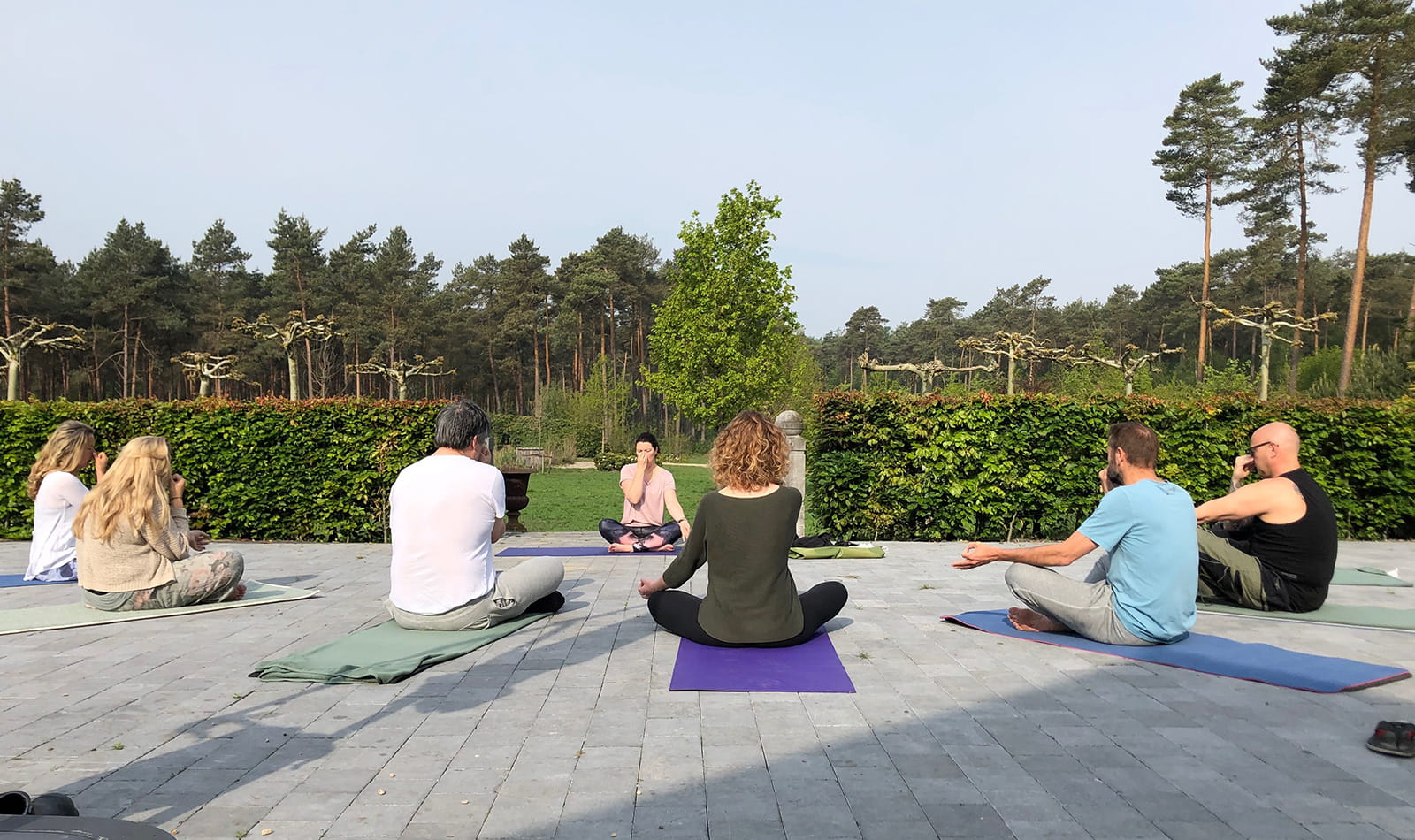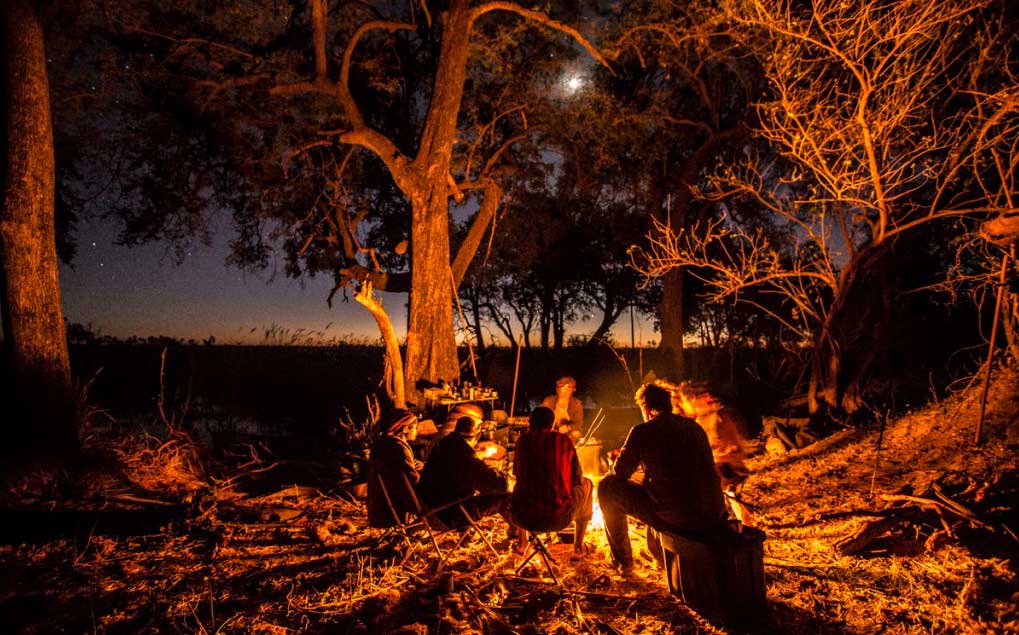Reading time: ~8 minutes
In a world that moves faster every day, many of us feel a quiet longing — a call to slow down, to reconnect, to remember who we are beneath the noise.
A spiritual retreat offers that space. It’s not just a getaway; it’s a journey inward.
At Essence, we create guided retreats in nature that blend mindfulness, psilocybin-assisted sessions, and integration work, helping you realign with your true self.
What is a spiritual retreat?
A spiritual retreat is a designated period of time spent away from the distractions of daily life in a secluded and peaceful setting. It is an intentional journey towards inner peace, self-awareness, and spiritual growth.
The retreats may vary in length, location, and activities but all share the common goal of providing a safe space for individuals to explore their spirituality.
Why should you consider going on a spiritual retreat?
There are numerous benefits to attending a spiritual retreat, including:
- Self-reflection: When we remove ourselves from our everyday environment and responsibilities, we have the opportunity to reflect on our lives and gain a better understanding of ourselves. This self-awareness can lead to personal growth and positive changes in our lives.
- Connection with nature: Many spiritual retreats are held in natural settings such as mountains, forests, or by the sea. Being surrounded by nature can have a calming and grounding effect on us, helping us to find inner peace.
- Mindfulness: Spiritual retreats often incorporate mindfulness practices such as meditation, yoga, and journaling. These activities can help us to be more present and in tune with our thoughts and emotions.
- Nurturing community: Retreats provide a supportive and nurturing environment where individuals can connect with like-minded people and form meaningful relationships.
Different types of spiritual retreats
Meditation retreats (Vipassana, Zen, TM)
Meditation retreats are focused on cultivating inner peace and stillness through various meditation practices. These types of retreats may be silent or involve some guided meditations.
Yoga retreats
Yoga retreats combine physical exercise with mindfulness practices to help individuals strengthen their mind-body connection. These retreats may also include workshops or classes on nutrition, wellness, and self-care.
Psychedelic retreats (truffle retreats, ayahuasca retreats, etc.)
Psychedelic retreats represent a unique and profound segment of spiritual journeys, offering participants the chance to explore their consciousness and encounter deep spiritual insights through the use of psychedelics like psilocybin truffles or ayahuasca.
Conducted in safe, controlled environments, these retreats are designed with the utmost respect for traditional practices and with a strong emphasis on safety, both physical and psychological.
Themed retreats (women’s retreats, healing retreats, nature retreats)
Themed retreats offer a more specialized approach, focusing on particular interests or needs to provide a deeply personalized and enriching experience.
How to choose the right spiritual retreat for you
With so many different types of spiritual retreats available, it can be overwhelming to decide which one is right for you. Here are some factors to consider when choosing a retreat:
- Location: Do you prefer a remote and secluded location or one closer to civilization? Consider the type of environment that will help you feel most at peace.
- Activities: Are you interested in a retreat that focuses on meditation, yoga, breathwork or another specific practice? Make sure to research the activities offered at each retreat before making your decision.
- Duration: How much time do you have available for the retreat? Some may only last a weekend, while others can be as long as a week, or more.
- Cost: Retreats can vary in cost, so consider your budget when choosing one.
What to expect during a spiritual retreat
While each retreat will have its own unique structure and activities, here are some general things you can expect during your experience:
- Silence: Many spiritual retreats incorporate periods of silence to help individuals focus inward and limit distractions.
- Personal time: Retreats often provide space for personal reflection, journaling, or simply enjoying solitude in nature.
- Instruction and guidance: Retreat leaders and facilitators are there to guide and support you throughout your inner journey.
- New connections: As mentioned before, retreats offer a nurturing environment for individuals to connect with others who share similar interests and values.
Preparing for a spiritual retreat
Before embarking on your spiritual retreat, it’s important to prepare yourself mentally, physically, and emotionally. Here are some tips to help you get ready:
- Set intentions: Take some time to reflect on what you hope to gain from the retreat and set clear intentions for yourself.
- Pack essentials: Make sure to bring comfortable clothing, a journal or notebook, and any necessary items for specific activities.
- Meditate or practice mindfulness: Consider incorporating a daily meditation or mindfulness practice leading up to the retreat to help prepare your mind for the experience.
- Disconnect from technology: To fully immerse yourself in the retreat, it’s helpful to disconnect from technology and social media beforehand.
Integrating the retreat experience into everyday life
Once the retreat has ended, it’s important to take time for reflection and integrate your experience into your everyday life. Here are some tips to help you continue on your spiritual journey:
- Continue with mindfulness practices: Incorporate any practices you learned during the retreat into your daily routine.
- Journaling: Continue journaling about your thoughts and reflections from the retreat, and use it as a tool for self-discovery.
- Stay connected: Stay in touch with any new connections you made during the retreat and continue to support each other’s spiritual journeys.
- Set aside quiet time: Carve out moments of stillness and reflection throughout your week to continue cultivating inner peace and self-awareness.
Overall, attending a spiritual retreat can be a transformative and enlightening experience. Whether you’re looking for a temporary escape from the stresses of everyday life or seeking deeper spiritual growth, there is sure to be a retreat that aligns with your needs and values.
By taking the time to choose the right retreat and preparing yourself beforehand, you can set yourself up for a meaningful and fulfilling journey towards inner peace and self-discovery.
Conclusion
Spiritual retreats offer an invaluable opportunity for individuals to disconnect from the noise of everyday life and reconnect with themselves, others, and the world around them. With various types of retreats and a supportive community of like-minded individuals, these experiences can provide deep spiritual insights, personal growth, and lasting connections. By following your intuition, setting intentions, and fully immersing yourself in the experience, a spiritual retreat can be a truly transformative and life-changing journey.
So why not take that first step towards self-discovery and consider attending a spiritual retreat? The benefits may just surprise you. Keep an open mind, embrace the unknown, and trust in the journey ahead. The possibilities are endless for those who are willing to embark on this powerful and enriching experience.
Embark on your own inner journey. Join one of our group retreats.
Frequently asked questions about spiritual retreats
What are spiritual retreats?
A spiritual retreat is a guided experience that helps you disconnect from daily distractions and reconnect with your inner self. It often combines meditation, mindfulness, nature, and reflection to promote peace, clarity, and personal growth.
What do spiritual retreats cost?
Prices for spiritual retreats vary depending on duration, location, and program. In the Netherlands, most retreats range between €500 and €2.000, including accommodation, meals, and guidance.
What is the difference between a spiritual retreat and a psychedelic retreat?
A spiritual retreat focuses on mindfulness and self-reflection, while a psychedelic retreat uses plant-based substances like psilocybin to deepen inner exploration. Both aim to promote healing and personal growth but take different approaches.
What is the purpose of a spiritual retreat?
The purpose of a spiritual retreat is to reconnect with your inner self, find peace, and gain clarity about life. It’s a time for reflection, healing, and renewal, away from the distractions of everyday life.
How to prepare for a spiritual retreat?
Prepare for a spiritual retreat by setting clear intentions, practicing mindfulness, and minimizing distractions before you go. Bring comfortable clothing, a journal, and an open mind.



